Filter by

Alternaria Diseases of Crucifers: Biology, Ecology and Disease Management
This book deals with the various aspects viz., the disease, geographical distribution, symptoms on different hosts, host range, yield losses, and disease assessment method, while detailed description on pathogen include taxonomic position, phylogeny, variability, sporulation, perpetuation, and spore germination, host-parasite interactions in the form of seed infection, disease cycle, process of…
- Edition
- Ed. 1
- ISBN/ISSN
- 978-981-10-0021-8
- Collation
- XXXVII, 299
- Series Title
- -
- Call Number
- 630 SAH a
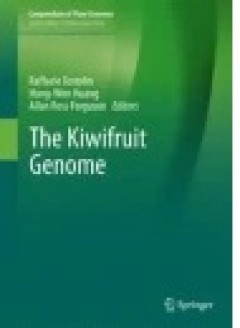
The Kiwifruit Genome
The book offers a valuable reference guide for taxonomists, geneticists and horticulturists. Further, since information gained from the genome sequence is extraordinarily useful in assessing the breeding value of individuals based on whole-genome scans, it will especially benefit plant breeders. Accordingly, chapters are included that focus on gene introgression from wild relatives and genome-b…
- Edition
- -
- ISBN/ISSN
- 978-3-319-32274-2
- Collation
- XV, 269
- Series Title
- Compendium of Plant Genomes
- Call Number
- -
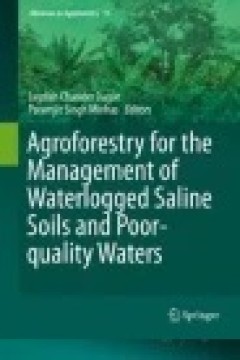
Agroforestry for the Management of Waterlogged Saline Soils and Poor-Quality …
Land degradation caused by salinity and waterlogging is a global problem afflicting about one billion hectares and endangering the food security of at least 75 countries. Since the social, economic and environmental costs of on and/off-farm reclamation techniques are high, agroforestry is now emerging as a potential tool, not only for arresting salinity and waterlogging, but also for other envi…
- Edition
- Ed. 1
- ISBN/ISSN
- 978-81-322-2659-8
- Collation
- X, 210
- Series Title
- Advances in Agroforestry
- Call Number
- 630 AGR a
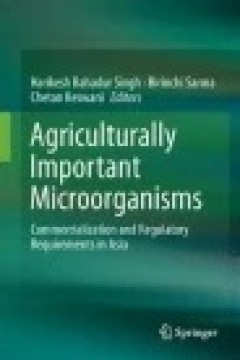
Agriculturally Important Microorganisms: Commercialization and Regulatory Req…
The main focus of this book is to survey the current status of research, development and use of agriculturally important microorganisms in Asian countries and develop a strategy for addressing critical issues various policy constraints due to which bio-pesticides have found limited applications. In this book the editors have tried to develop a consensus on issues of such as quality requireme…
- Edition
- Ed. 1
- ISBN/ISSN
- 978-981-10-2576-1
- Collation
- XVII, 305
- Series Title
- -
- Call Number
- 630 AGR a
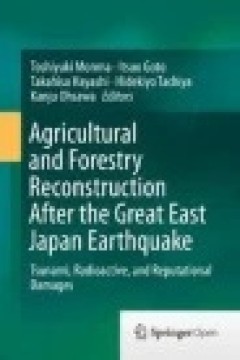
Agricultural and Forestry Reconstruction After the Great East Japan Earthquak…
This book summarizes the results of 3 years of agricultural and forestry reconstructive efforts and applied research conducted directly in the affected areas of Fukushima following the Great East Japan Earthquake. It describes fast and effective revival methods and technologies from tsunami and radiation damages, demonstrated through the collaborative efforts of researchers, students, local far…
- Edition
- Ed. 1
- ISBN/ISSN
- 978-4-431-55558-2
- Collation
- XVII, 264
- Series Title
- -
- Call Number
- 536.33 AGR a
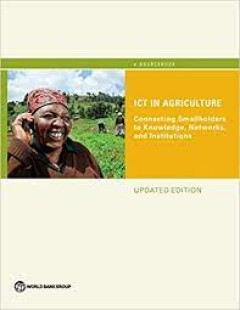
ICT in Agriculture : Connecting Smallholders to Knowledge, Networks, and Inst…
Information and communication technologies (ICTs) have always mattered in agriculture. Ever since people have grown crops, raised livestock, and caught fish, they have sought information from one another. What is the most effective planting strategy on steep slopes? Where can I buy the improved seed or feed this year? How can I acquire a land title? Who is paying the highest price at the market…
- Edition
- -
- ISBN/ISSN
- -
- Collation
- -
- Series Title
- -
- Call Number
- 630 ICT

Sago Palm : Multiple Contributions to Food Security and Sustainable Livelihoods
This book addresses a wide variety of events and technologies concerning the sago palm, ranging from its botanical characteristics, culture and use to social conditions in the places where it is grown, in order to provide a record of research findings and to benefit society. It discusses various subjects, including the sago palm and related species; differentiation of species of starch-producin…
- Edition
- -
- ISBN/ISSN
- 978-981-10-5269-9
- Collation
- -
- Series Title
- -
- Call Number
- 630 SAG
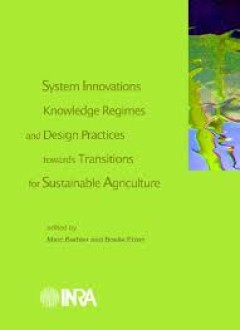
System Innovations, Knowledge Regimes, and Design Practices towards Transitio…
Over the past decade the transition towards sustainable agriculture has been a central theme in the work of many organisations, including government bodies, NGOs, professional organisations and research institutions. Various publications, including White Papers by the EU and different national governments, have defined future targets and objectives to improve sustainability in various subs…
- Edition
- -
- ISBN/ISSN
- -
- Collation
- -
- Series Title
- -
- Call Number
- 630 BAR s

Botrytis – the Fungus, the Pathogen and its Management in Agricultural Systems
The fungal genus Botrytis is the focus of intensive scientific research worldwide. The complex interactions between this pathogen and the plants it infects and the economic importance of the diseases caused by Botrytis (principally grey mould) on more than 1400 species of cultivated plants pre- and post-harvest, render this pathogen of particular interest to farmers, advisers, students and rese…
- Edition
- -
- ISBN/ISSN
- 978-3-319-23371-0
- Collation
- -
- Series Title
- -
- Call Number
- 630
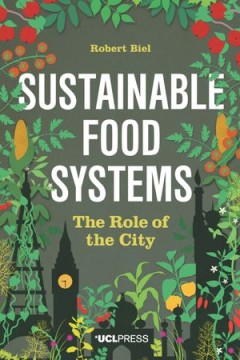
Sustainable Food Systems : The Role of the City
This book places itself within the traditions and the ongoing activity of UCL’s Bartlett Development Planning Unit, and within its research cluster, Environmental Justice, Urbanisation & Resilience. It draws heavily upon my teaching for the Environment and Sustainable Development Masters. I owe an immense debt to all my fellow Development Planning Unit (DPU) staff, as well as past and prese…
- Edition
- -
- ISBN/ISSN
- 9781911307099
- Collation
- -
- Series Title
- -
- Call Number
- 630 BIE s
 Computer Science, Information & General Works
Computer Science, Information & General Works  Philosophy & Psychology
Philosophy & Psychology  Religion
Religion  Social Sciences
Social Sciences  Language
Language  Pure Science
Pure Science  Applied Sciences
Applied Sciences  Art & Recreation
Art & Recreation  Literature
Literature  History & Geography
History & Geography